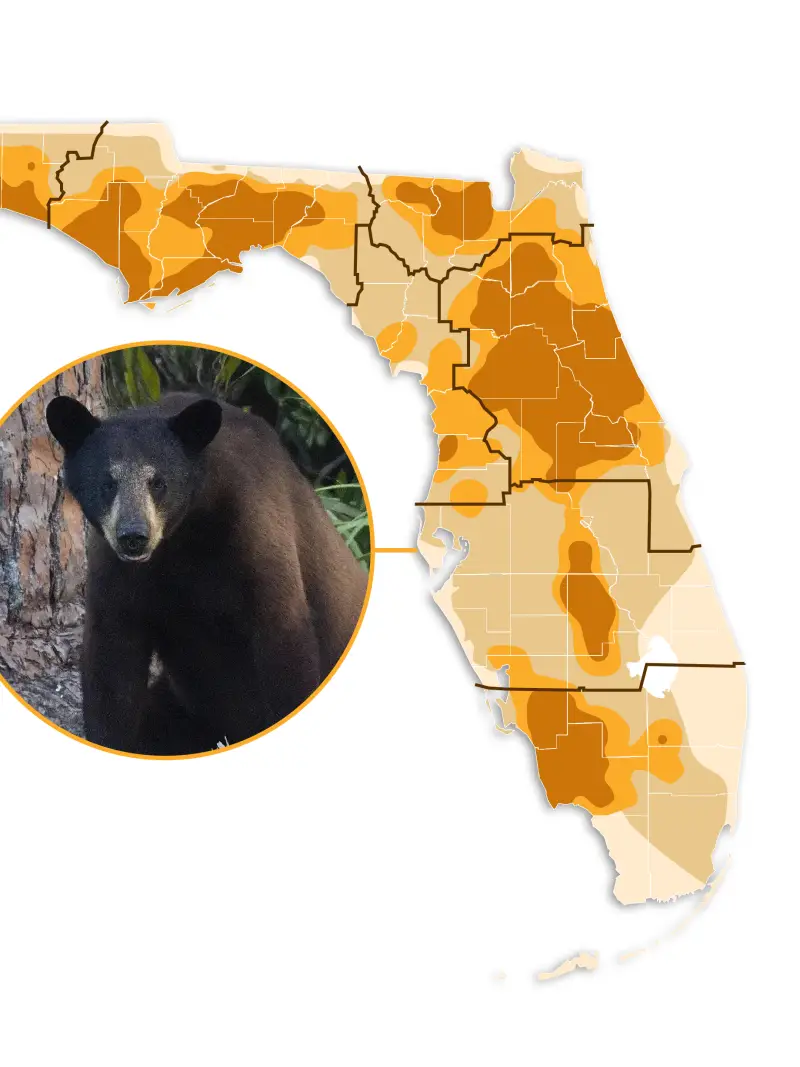
HOLLY HILL, FL — With the 2025 Florida trophy bear hunt looming, a fierce legal showdown is unfolding in the state’s capital. Attorney Raquel Levy, representing Bear Warriors United, is preparing to argue a high-stakes injunction case aimed at halting the controversial hunt before it begins. The hearing, scheduled in Tallahassee Circuit Court, seeks to block the Florida Fish and Wildlife Conservation Commission (FWC) from moving forward with its plan to reopen bear hunting for the first time in a decade.
Levy, based at the Atlantic Law Center in Holly Hill, has described the case as a “David and Goliath fight,” pitting grassroots conservationists against one of the state’s most powerful regulatory bodies. Despite the odds, she remains confident. “Our case is rock solid in both law and science,” Levy stated, calling on the public to support the legal team with prayers and advocacy as they prepare to defend Florida’s wild heritage.
The FWC voted earlier this year to reinstate the bear hunt, citing population growth and increased human-bear interactions as justification. The hunt is slated to run from December 6 through December 28, with permits allowing hunters to target Florida black bears across several management units. The agency argues that regulated hunting is a necessary tool for population control and public safety.
But opponents of the hunt, including Bear Warriors United, argue that the FWC’s decision is based on outdated data and flawed science. The lawsuit contends that the agency failed to follow proper rulemaking procedures and did not adequately consider non-lethal alternatives. Conservationists point to the lack of recent population studies and the absence of a comprehensive environmental impact assessment as critical oversights.
Florida’s black bear population, once on the brink of extinction, has rebounded from a few hundred in the 1970s to an estimated 4,000 today. While this recovery is often cited by proponents of the hunt, wildlife advocates argue that the resurgence is fragile and uneven across regions. They warn that reintroducing hunting could reverse decades of conservation progress, especially in areas where bear populations remain vulnerable.
The 2015 bear hunt—the first in over 20 years—ended in controversy after more than 300 bears were killed in just two days, prompting the FWC to suspend future hunts amid public outcry. Many Floridians still remember the images of slain bears and orphaned cubs, which galvanized a statewide movement to protect the species.
Now, with the 2025 hunt on the horizon, that movement has reignited. Environmental groups, indigenous leaders, scientists, and everyday citizens have rallied behind Levy’s legal challenge, flooding city halls and social media with calls to action. Petitions opposing the hunt have garnered tens of thousands of signatures, and peaceful demonstrations are being organized across the state.
“This is about more than bears,” said one supporter outside the Atlantic Law Center. “It’s about what kind of Florida we want to leave for future generations—one where wildlife has a place, or one where it’s sacrificed for sport.”
The outcome of the injunction hearing could have far-reaching implications. If the court grants the injunction, it would not only halt the 2025 hunt but also force the FWC to revisit its wildlife management policies with greater transparency and scientific scrutiny. If denied, the hunt will proceed as planned, potentially setting a precedent for future wildlife policy decisions.
As the legal team prepares for its day in court, the stakes could not be higher. For Florida’s black bears—and the people fighting to protect them—this case may be the last line of defense.
Add comment
Comments